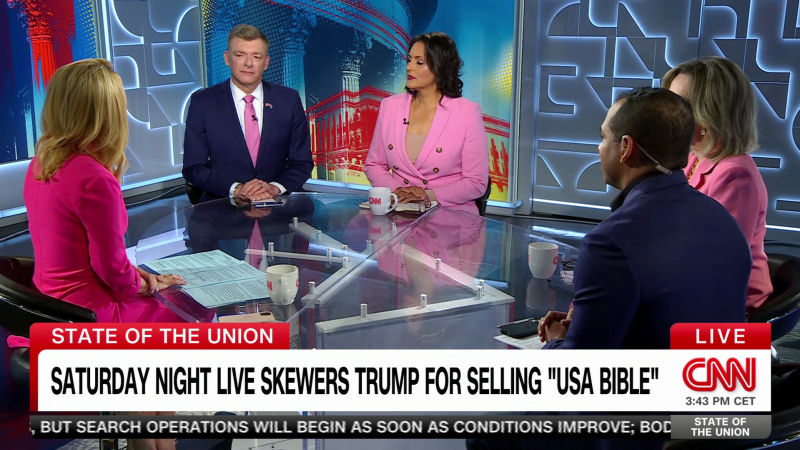The panel discussion centered around Donald Trump’s use of violent imagery in his social media posts. Former Rep. Barbara Comstock expressed concern about the impact of such images on American society, echoing previous criticisms of Trump’s rhetoric. Democratic Strategist Doug Thornell also criticized Trump’s use of violent imagery, citing the need for political leaders to set a positive example for the public. On the other hand, Former Special Assistant to President Trump Marc Lotter defended the president’s actions, arguing that Trump was merely responding to attacks from his critics. CNN Political Commentator Karen Finney urged for a more civil tone in political discourse, highlighting the need for respectful dialogue even in the face of disagreement.
The panelists also touched on the broader implications of Trump’s use of violent imagery, with Thornell warning that it could incite violence and further deepen political divisions in the country. Comstock pointed out that Trump’s behavior was not in line with traditional standards of presidential conduct, highlighting the need for greater accountability for politicians in positions of power. Lotter, however, stood by Trump’s tactics, suggesting that they were simply a response to the hostile environment in which the president operates. Finney emphasized the importance of holding political leaders to a higher standard of conduct, especially in an era of heightened political polarization.
The discussion highlighted the ongoing debate surrounding the role of social media in shaping political discourse and public opinion. Comstock raised concerns about the harmful effects of violent imagery on vulnerable individuals, emphasizing the need for political leaders to show restraint in their online behavior. Thornell underscored the need for greater responsibility and accountability among elected officials, particularly when it comes to their use of social media. Lotter defended Trump’s use of social media as a way to directly communicate with his supporters and push back against his critics. Finney advocated for a more thoughtful approach to social media use, emphasizing the importance of fostering productive dialogue and respecting differing viewpoints.
The panelists also discussed the potential consequences of Trump’s use of violent imagery on the upcoming midterm elections. Comstock expressed worries that Trump’s behavior could further polarize voters and weaken democratic norms, calling for a more civil and respectful tone in political campaigns. Thornell echoed these concerns, highlighting the need for political leaders to prioritize unity and common ground over inflammatory rhetoric. Lotter, on the other hand, emphasized the importance of Trump’s communication strategy in mobilizing his base and driving enthusiasm among his supporters. Finney warned against the dangers of normalizing violence and aggression in political discourse, urging for a more thoughtful and responsible approach to political communication.
In conclusion, the panel discussion underscored the need for greater responsibility and accountability among political leaders when it comes to their use of social media. While Trump’s use of violent imagery has sparked controversy and criticism, it has also drawn attention to broader issues surrounding political communication and the impact of social media on public discourse. The panelists offered differing perspectives on the matter, with some calling for a more civil and respectful tone in political discourse, while others defended Trump’s tactics as necessary in a hostile political environment. Ultimately, the discussion highlighted the complex challenges facing American democracy in an era of heightened political polarization and social media influence.


